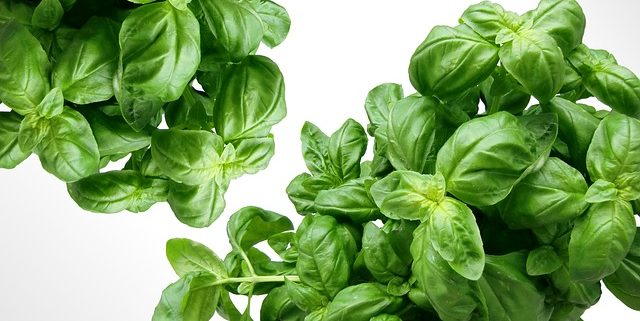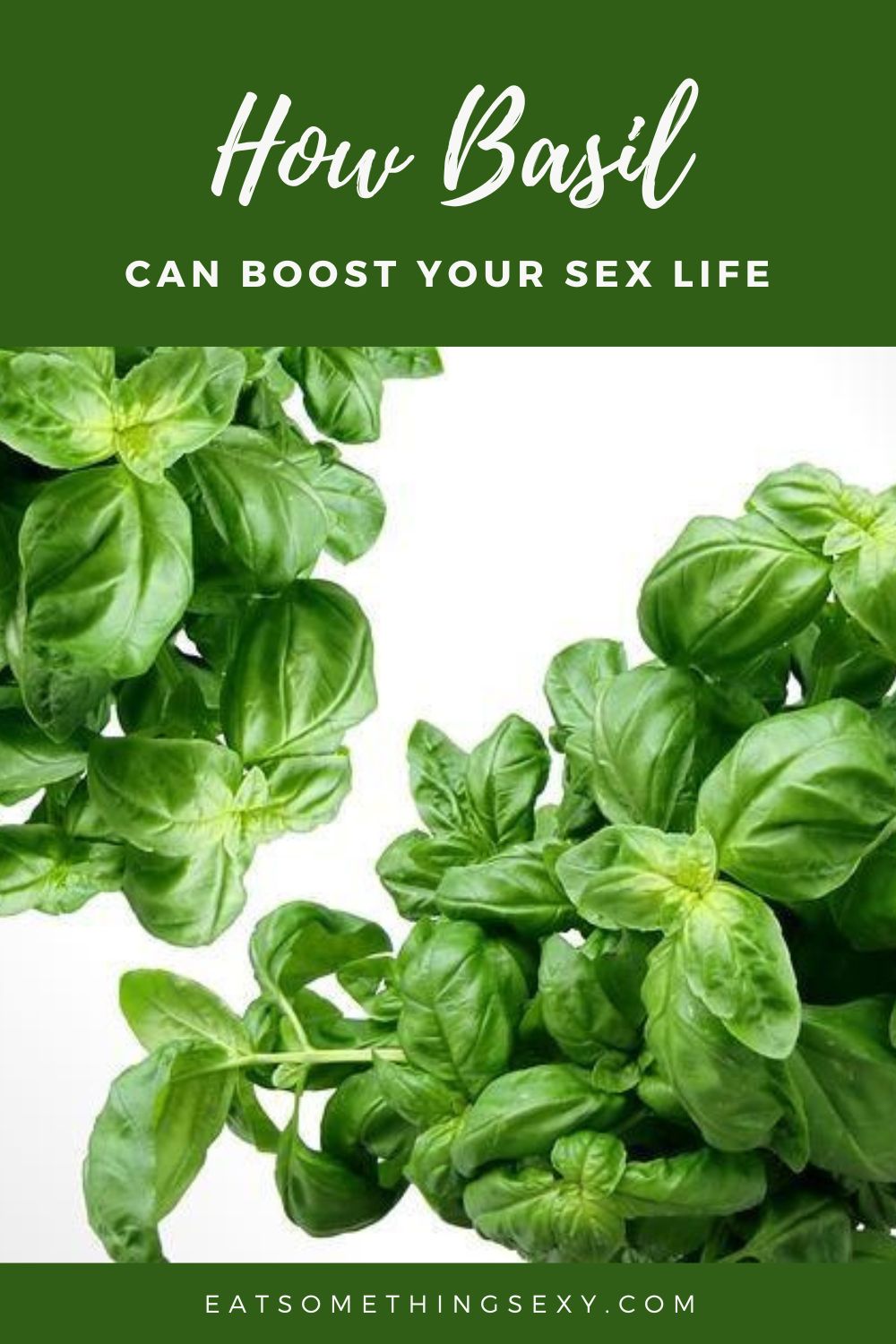
Although most of us probably best know this herb as a flavor booster for foods with an Italian flare, basil was once considered among the earth’s most noble and sacred plants.
Why is basil an aphrodisiac?
The plant is believed to have originated in Asia, but its use in European culture dates back to Ancient Greece. (The Greeks called the herb “basilkohn” which means “royal.”) In Roman times, basil was a symbol of love.
In ancient cultures, it was regarded as a food of enlightenment. According to Erotic Cuisine: a natural history of aphrodisiac cookery, its aroma was thought to guide both body and spirit into a “unity of perception and acceptance.”
RELATED: Discover the aphrodisiac benefits of mint
Benefits to sexual health
Although it might come as a surprise to most pesto lovers, the vibrant, leafy green’s leaves contain a variety of libido-lifting nutrients. It is considered a good source of Vitamin A, offering about 6% of the DV in a two-tablespoon serving.
It also provides manganese, vitamin C and folate, all nutrients linked with sexual health and fertility. Most remarkably, it is a source of vitamin K. This vitamin is most often talked about in association with preventing osteoporosis. But it is also known to help prevent the hardening of arteries and may be beneficial in fighting erectile dysfunction.
Although it won’t directly impact your sex drive or sexual performance, it is worth noting that basil is also thought to be beneficial in reducing stress-related depression. And it may help to relax blood vessels. However, it is recommended that you talk to a physician before using basil to treat chronic depression or any heart-related illness.
But the key benefit of basil when it comes to your sex life may have to do with its flavonoids. That’s because the herb’s flavonoids offer anti-inflammatory properties.
But what are flavonoids? These are plant compounds found in deeply colored fruits and vegetables, as well as cocoa, tea and wine. They are rich in antioxidant activity (which means they fight free radicals) but different flavonoids offer different specific benefits. And for basil, the benefit is reducing inflammation.
Now this may not directly impact your sexual performance but inflammation is linked with reduced sexual desire. Can basil help get you in the mood? Well, with its many proven benefits, it certainly can’t hurt!
Discover the many varieties of basil
There are over 50 varieties of basil grown around the world. Their shapes vary from long-leafed with pointy tips to broad with blunt edges. In flavor, varieties vary from subtle and anise-like to faintly spicy to a tinge of lemon.
You’re probably most familiar with the green-leafed sweet variety used in Italian cooking. But if you’re ever lucky enough to find a bunch of opal basil, be sure to experience the subtle, smoother flavor of this less popular herb. It’s so good!
Cooking and recipes
The herb is sold both fresh and dried. Fresh basil lasts well on the counter in a cup, the stems in a splash of water. Or store the bunch in the refrigerator wrapped in damp paper towels. To make its flavor last, fill ice cube trays with the minced herb and cover with water or stock and use later for flavoring soups and sauces.
Here are a few of my favorite recipes featuring basil to tempt your tastebuds:
Meyer Lemon Quinoa with Turmeric, Black Pepper and Basil Leaves
Watermelon Soup with Jicama Salsa
Discover more of the world’s greatest aphrodisiac foods
This article was written in 2010 and most recently updated in September 2024 with updated links and graphics.
- The Best Spring Gin Cocktail to Shake Off the Winter Blues - March 29, 2025
- The Effects of Peanuts on Females: The Peanut & Sexual Health Link - March 15, 2025
- The Best Buffalo Burger Recipe - March 14, 2025




The clinical research you share is a single study with rabbits, not humans as the test subject. It should also be mentioned that it studies only one type of basil. Basil has a history as an aphrodisiac that stretches back nearly to the start of recorded time. There is much evidence to show that the nutrients in this herb are beneficial to sexual health and sex drive, not to mention the fact that there are even studies on the stimulating impact of basil’s aroma. We thank you to drawing our attention to an opposing point of view but we will most definitely not be taking down our article, which takes much history and research into consideration, on the basis of a single examination of the effect of basil on rabbits.
Please remove your article on Tulsi. You are misleading people. Matter of fact , holy people eat tulsi frequently to reduce the sex drive for Kundilini pirposes.
Here is the clinical search.
https://www.ncbi.nlm.nih.gov/pmc/articles/PMC3059441/